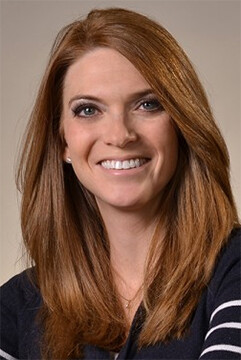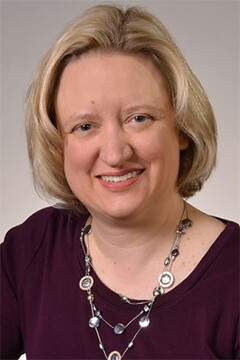
Two grants from the U.S. Department of Education-Institute of Education Sciences, one for improving the understanding of health needs and information by youth transitioning from high school to independent living and one for training postdoctoral researchers, have been awarded to University of Nebraska-Lincoln research professors Alexandra Trout and Kristin Duppong Hurley in the Academy for Child and Family Well Being.
A $1.5 million grant will be used to develop a web-based health literacy program for high school-age youth with high-incidence disabilities. The four-year project led by Trout, which began July 1, will culminate with a randomized trial of 70 students from Lincoln Public Schools in the fourth year.
The desire to pursue a health literacy program stemmed from an after-care program Trout and her colleagues developed in partnership with Boys Town. That program, called On the Way Home, was designed to help youth leaving residential programs like Boys Town to return to their homes.
“What we found with our first On the Way Home study was that although most youth were quite successful, a few continued to struggle,” Trout said. “Some returned to care, some ended up in the juvenile justice system, and some dropped out of school. We spent a lot of time talking about those few cases – what went wrong and what we could have done better. One of the things we noticed was that several of these kids were really struggling with other health issues.”
The researchers observed that many teenagers did not have the knowledge to independently navigate and manage their own health care. While life skills, vocational education/employment and post-secondary education have been focal points of preparing youth for the transition from high school to independent living, health care management has often been overlooked.
“In schools, the health curriculum typically addresses health care on a very philosophical level. Although youth are learning important general concepts, the applied questions such as, ‘You’re going to a doctor appointment, what do you need to have with you?’ ‘When do you go to the doctor versus the ER?’ ‘How do you identify a doctor?’ ‘How do you access health insurance?’ are not addressed,” Trout added.
During the first year of the study, the UNL researchers will conduct focus groups with students who are preparing to transition from high school, those who have recently made the transition and have had to face their health care needs on their own, and the educators who work with those populations.
The researchers will present the focus groups with an example of a health literacy instruction program to demonstrate the curriculum both as it is currently in paper-and-pencil format and how it is anticipated to look in a web-based format. After getting feedback from the groups, the curriculum will be modified to a web-based approach.
In the second and third years of the study, the researchers will conduct small feasibility studies and continue to modify the curriculum. Year four will include a small randomized trial with 35 students in a treatment group and another group of 35 who will receive only the traditional health curriculum. The groups will be compared to see whether the web-based health literacy curriculum improves the students’ health literacy and prepares them for transition. Youth and educator satisfaction with the web-based curriculum will also be assessed.
“At the end of the four years, we will have an intervention that is fully developed and the preliminary data on curriculum efficacy necessary for a larger-scale evaluation,” Trout said.
The second grant, an award of more than $625,000, will be used to train three postdoctoral researchers for two years each over a four-year period. Recruitment for the postdoctoral fellowship program, which is led by Duppong Hurley and Trout, will begin in September, with the first researcher joining the Academy for Child and Family Well Being in summer 2017.
“Our program is unique because in most postdoctoral programs you’re working with just one person. Here, they will collaborate with multiple researchers at UNL in the Academy for Child and Family Well Being, as well as working at Boys Town and in ongoing opportunities in the schools and other family service agencies,” Duppong Hurley said. “It allows them to get into the field and learn about applied research, and helps them understand how their research helps those in community services and agencies.”
This is the second time the Academy for Child and Family Well Being has received a postdoctoral research grant. The first round was used to train four students through a variety of research projects, with the fourth finishing her appointment this summer. Those four individuals have obtained faculty positions at the University of South Carolina, University of Texas at San Antonio, Tennessee State University and UNL.










